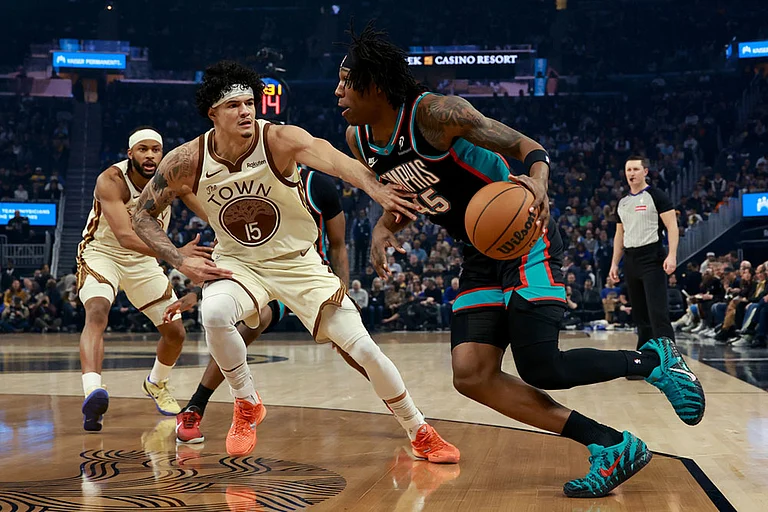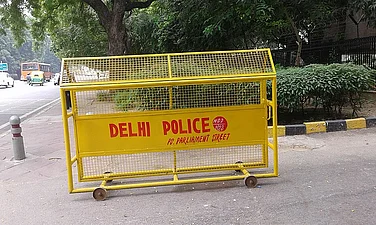The ruling BJP in Gujarat is aiming for a straight seventh term in the state, as the counting of votes for Assembly elections held on December 1 and 5, begins on Thursday.
It was a high-stakes three-cornered fight between the BJP, Congress and AAP. Political observers said the outcome will determine who captures the main opposition space in Gujarat.
Exit polls have predicted a big majority for the BJP in Gujarat and if these projections are any indication, the saffron party is all set to retain power in the state for the seventh consecutive term and equal Left Front’s feat in West Bengal.
For the BJP, a positive result will firm up Narendra Modi’s bid for a third consecutive term as PM in 2024.
For the Congress, its role as the main challenger to the BJP is at stake and Thursday’s results will reveal if the party’s ‘silent campaign’ has cut ice with people, an observer said. The top leaders of the party were busy with the Bharat Jodo Yatra.
For AAP, which carried out an aggressive campaign, the Gujarat election is a chance to establish itself as a pan-national party and a challenger to BJP at the national level also.
Emboldened by the victory in the Delhi municipal elections, AAP hopes that its welfare politics will be accepted by the people in Gujarat.
The BJP battled anti-incumbency sentiments after 27 years of rule in the state as it faced the recent elections. Modi was the party’s trump card and the ruling party banked on Brand Modi containing the anti-incumbency factor.
Among the key issues in the elections were unemployment, price rise, water not reaching certain pockets of the state, land acquisition for big projects and farmers not getting proper compensation for crop damage due to excess rains.
The voting percentage this time around was almost four per cent less than what it was in 2017 as the state recorded 64.33 per cent voting against 68.39 per cent in 2017.
This decline was attributed to the general apathy of the urban voters to exercise their franchise. The low voting percentage has left the BJP worried, and in the second phase, the party made frantic efforts to increase the polling figures.
While the contest in Gujarat has traditionally been between the BJP and Congress, it was three-cornered this time around with Aam Aadmi Party (AAP) entering the poll arena.
Prime Minister Narendra Modi led the BJP poll campaign, addressing around 30 rallies and road shows in the state. Union minister Amit Shah was in the state for almost two months, micromanaging the campaign and election strategy for the BJP.
Party president J P Nadda, and chief ministers of BJP-ruled states including Yogi Adityanath, Shivraj Singh Chouhan, Himanta Biswa Sarma and Pramod Sawant also addressed election rallies in the state.
Almost all the Union ministers of the BJP campaigned in the state.
Congress leader Rahul Gandhi found time from his Bharat Jodo Yatra to address two rallies in Gujarat. Rajasthan CM Ashok Gehlot led the party’s campaign in the state. Party chief Mallikarjun Kharge also addressed poll rallies.
Delhi CM Arvind Kejriwal led an aggressive campaign for AAP, addressing several rallies and holding road shows in the last five months.
The counting of votes will start at 8 am on Thursday at 37 counting centres covering the 182 Assembly seats, Chief Electoral Officer P Bharathi said.
There will be three centres in Ahmedabad, two in Surat and Anand, and one in each of the remaining 30 districts. All necessary preparations for the counting have been done, Bharathi told reporters in Ahmedabad on Wednesday.
Altogether 182 counting observers and as many election officers along with 494 assistant election officers will be on duty for the entire counting process, the official said.
A three-tier security system has been ensured at all the counting centres with local police and personnel of State Reserve Police Force (SRPF) and Central Armed Police Force (CAPF), the CEO said.
While counting of postal ballots will be done from 8 am, counting of EVM votes will begin at 8.30 am, Bharathi said. The entire process will be video graphed, she added.
The ruling party is expected to win in the range of 117-151 seats, while the Congress was predicted to bag between 16 to 51 seats. The Aam Aadmi Party was projected to bag anything between two and 13 seats. The majority mark in Gujarat is 92.
The fate of Chief Minister Bhupendra Patel, Aam Aadmi Party (AAP)'s chief ministerial candidate Isudan Gadhvi, youth leaders Hardik Patel, Jignesh Mevani and Alpesh Thakor, among a total 1,621 candidates will be decided on Thursday.
A total 70 political outfits and 624 independents were in the fray.
Apart from the main rivals BJP, Congress and AAP, 101 candidates from Bahujan Samaj Party (BSP), and 26 from Bharatiya Tribal party (BTP) also contested.
In the 2017 Assembly polls, BJP won 99 seats and Congress 77 seats, while two seats went to BTP, one to NCP, and three to independents.
Ahead of this month’s elections, the BJP's number in the House stood at 110 and Congress at 60 after 20 MLAs who won on Congress seats switched over to the BJP in the last five years, three of them quitting just ahead of the elections.
Punjab CM and AAP leader Bhagwant Mann spoke on his party winning the Municipal Corporation of Delhi (MCD) elections, adding it will perform well in Gujarat too.
“The BJP wanted to stop AAP, so it had fielded its entire force on the ground. I will be with you again tomorrow during the Gujarat Assembly polls results. The results will be surprising. The exit polls will prove to be wrong in Gujarat. I will go to the party office and celebrate with the workers," he said.
(With inputs from PTI)




















.png?w=200&auto=format%2Ccompress&fit=max)





